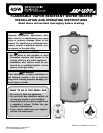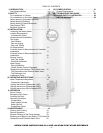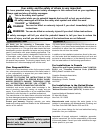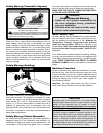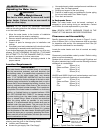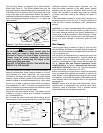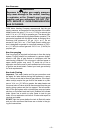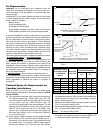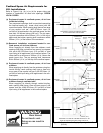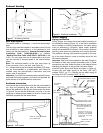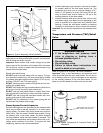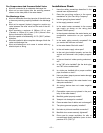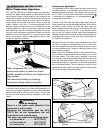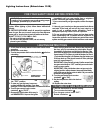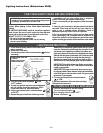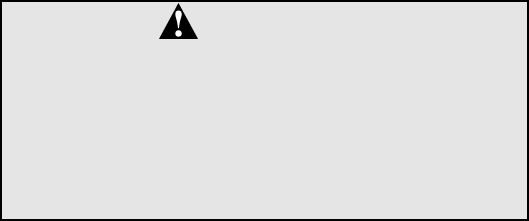
Gas Pressure
GSW Water Heating Company recommends that the gas
supply pressure, as measured on the inlet side of the water
heater control, be set at 7.0 in. w.c.(1.7 kPa) for natural gas
and 11.0 in. w.c. (2.7 kPa) for propane gas. The above pres-
sures must be measured during water heater operation. The
gas control supplied with this water heater is designed for a
maximum inlet pressure of 0.5 psi (14 in. w.c.). Do not
exceed 0.5 psi (14 in. w.c.). The Flame Guard
TM
safety sys-
tem is designed to operate at a manifold pressure of 5.0 in.
w.c. (1.2 kPa) for natural gas and 10.0 in. w.c. (2.4 kPa) for
propane gas.
Gas line purging
Gas line purging is required to eliminate air from the piping
system. Purging should be performed by persons experi-
enced in this type of gas service in compliance with the
code having jurisdiction. Do not purge in confined areas or
space where ignition may occur. To avoid risk of fire or
explosion ensure the area is well ventilated and all sources
of ignition are de-activated. Contact your local gas authority
for local requirements.
Gas Leak Testing
Important: This water heater and its gas connection must
be tested for leaks before placing the appliance in opera-
tion. Perform a leak test at normal gas pressure. If the appli-
cable code(s) require the gas lines to be tested at a pres-
sure of 14 in. w.c. (3.5 kPa) or greater, the water heater and
its manual shut-off valve must be disconnected from the gas
supply piping system and the line capped. Test all connec-
tions of the gas system with a chloride-free soap and water
solution or equivalent leak test liquid. Bubbles will indicate
leaks. Never use a match or open flame to test for gas
leaks. A fire or explosion could result. If leaks exist repair as
required and retest.
DO NOT light the burner before the tank is filled with water
and you have confirmed that there are no leaks in the pip-
ing and connections.
– 8 –
WARNING
Exposure to a higher gas supply pressure
may cause damage to the control, resulting
in explosion or fire. Consult your local gas
supplier and gas authorities. DO NOT PUT
INTO SERVICE IF OVER-PRESSURIZATION
HAS OCCURRED.



